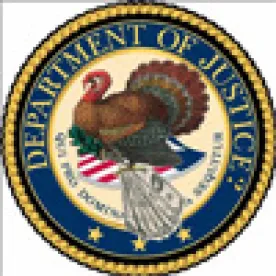On April 5, 2016, the Fraud Section of the U.S. Department of Justice's Criminal Division issued a much-awaited Enforcement Plan and Guidance ("Guidance") on the Foreign Corrupt Practices Act (FCPA or the "Act"). This Guidance lays out the framework for three key initiatives—the most notable of which is a pilot program that offers reduced-fine amounts and a declination of criminal charges in exchange for voluntary self-disclosure and cooperation by corporate offenders.
In the wake of the recent Yates Memorandum, which seeks greater accountability of individuals within corporations who engage in wrongdoing, this Guidance is a step towards greater transparency in the government's FCPA enforcement strategy. The Fraud Section is attempting to carry out that strategy by focusing its efforts on company self-disclosures while endeavoring to hold individuals accountable for violations of the Act. Among the noteworthy features of this initiative, the Fraud Section announced that it would increase its enforcement resources by adding ten prosecutors to its ranks and creating three new FBI teams exclusively dedicated to FCPA investigations and prosecutions; strengthen its international cooperation with foreign counterparts; and implement a one-year enforcement pilot program aiming to "promote greater accountability" for companies and individuals involved in bribery schemes.
The most salient of these new initiatives—the pilot program—encourages companies to (a) voluntarily self-disclose FCPA violations; (b) fully cooperate with the Fraud Section during ongoing investigations; and (c) remediate the criminal conduct in a timely and appropriate manner. In exchange, the Fraud Section will offer up to 50 percent reduction off the bottom end of the range of fines set forth in the U.S. Sentencing Guidelines (depending on the level of cooperation and the timing of the self-disclosure), and it "will consider a declination of prosecution."
A company will receive credit for voluntary self-disclosure only if it occurs within a reasonable time after discovery of the wrongdoing and is not otherwise mandated by law or some other form of contract or agreement. In addition, the company must make a disclosure "prior to an imminent threat of disclosure or government investigation" and provide all relevant information uncovered during its internal investigation, including facts about individuals potentially involved in the scheme.
According to the Guidance, the Fraud Section is seeking proactive cooperation. To receive credit, the self-disclosing company must provide the government with all relevant documents and information about the criminal conduct, even if related to third-party companies or located overseas; give the Fraud Section timely updates on the company's internal investigation; disclose facts related to that investigation; and, if requested, make company officers and employees available for government interviews. In addition, a company must have remedied its criminal conduct in a timely and appropriate fashion, including taking disciplinary action towards delinquent employees and their supervisors when applicable, and agree to disgorge any ill-gotten profits from the criminal conduct at issue. Finally, the Fraud Section will consider whether the company has an effective compliance program that receives sufficient resources to guarantee employee awareness and includes risk assessment, reporting, and auditing tools designed to identify and guard against future risks of noncompliance.
When a company fulfills the three prongs of the pilot program, it may receive "up to a 50% reduction off the bottom end of the Sentencing Guidelines fine range." In addition, the Fraud Section will generally "not require [the] appointment of a monitor if [the] company has, at the time of resolution, implemented an effective compliance program."
Finally, where a company satisfies all of the requirements of the program, the Fraud Section "will consider a declination of prosecution" of the company. In considering whether a declination is appropriate, the Fraud Section will "take into account countervailing interests, including the seriousness of the offense," and whether (a) "there has been involvement by executive management of the company," (b) there was "a significant profit to the company from the misconduct in relation to the company's size," (c) there is "a history of non-compliance by the company," and (d) there is "a prior resolution by the company with the Department within the past five years." In those situations, a criminal prosecution still "likely would be warranted"—notwithstanding the company's cooperation—but the company would receive the benefit of a lower fine.
Ultimately, the key to securing the lowest possible fine centers on companies cooperating as early as possible. Voluntary self-disclosure is a mandatory pre-requisite to benefit from the 50 percent reduction. If a company does not voluntarily disclose criminal conduct, but later fully cooperates with the DOJ and remediates the conduct, it may receive limited credit that can, at most, amount to a 25 percent reduction. In all cases, the company must disgorge all profits generated from the FCPA violation.
The Guidance offers some clarity for resolving FCPA investigations with the Department of Justice, but it is far from perfect. For example, although the pilot program promises discounts off the fine range set forth in the sentencing guidelines, the Department of Justice and defense counsel often disagree on the underlying calculation for the fine amount from which the discount would be applied. In addition, the Guidance falls short of guaranteeing an outright declination in exchange for complete cooperation—a guarantee that has contributed to the success of the Antitrust Division's leniency program, which provides for certain declination in exchange for first-in-the-door cooperation.
In the end, the Fraud Section candidly admits that it intends to revise the Guidance based on the experience it gains from implementing the pilot program. Perhaps this will prompt the Fraud Section to provide additional insight and certainty as to the criteria for declinations. In any event, the pilot program is a step in the right direction—one towards transparency in resolving FCPA investigations.
The DOJ's Memorandum can be accessed here.





 />i
/>i
